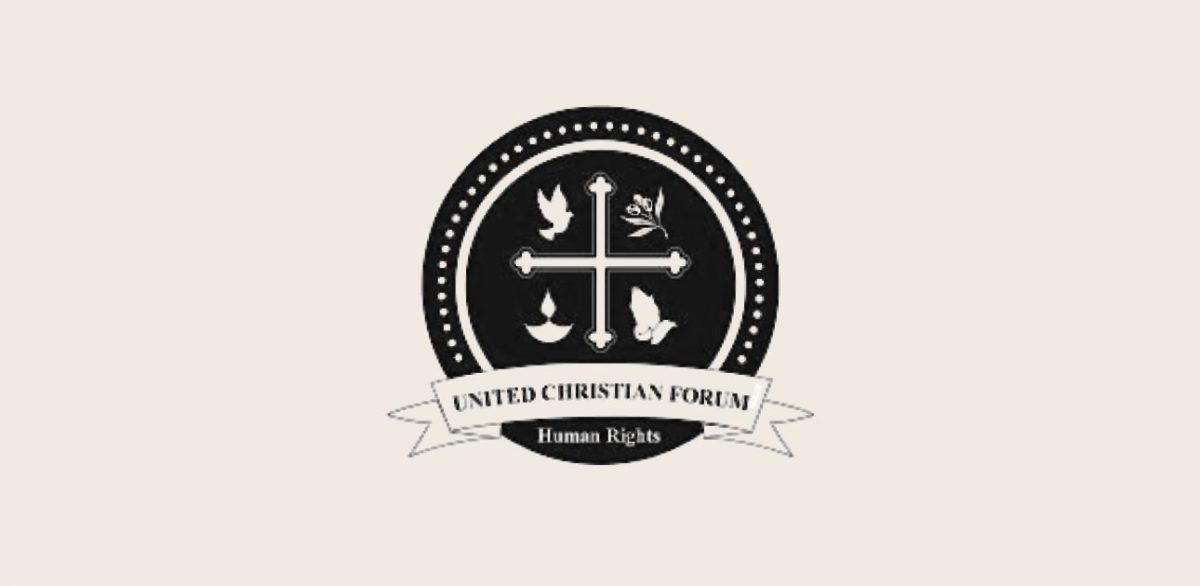The United Christian Forum (UCF) has expressed “deep anguish” over recent remarks by the Allahabad High Court in a bail order dated July 1, 2024, in the case of Kailash vs. the State of Uttar Pradesh. Kailash sought bail against purported offences under Section 365 of the Indian Penal Code, 1860 and Section 3/5(1) of the U.P. Prohibition of Unlawful Conversion of Religion Act, 2021. Justice Rohit Ranjan Aggarwal, while rejecting the bail application, stated, “If this process (conversion) is allowed to be carried out, the majority population of this country would be in the minority one day, and such religious congregation should be immediately stopped where the conversion is taking place and changing religion of citizen of India.”
Stating that Christians are as much citizens of India as anyone else and deserve equal protection under the law, the statement says that the constitutional Court should have limited its focus to the criminal law aspect of the case rather than being swayed by “majoritarian religious considerations and making sweeping statements about a specific religious community.” Further, the statement says that the UCF is concerned that these observations could expose the Christian community to further persecution.
The UCF has also pointed out that Christians in several parts of India, including Uttar Pradesh, Chhattisgarh, Madhya Pradesh, Manipur, and Rajasthan, face targeted violence. Analysing constitutional provisions, the statement says that the High Court failed to distinguish between voluntary and forced conversions and made several statements, such as:
- “It (conversion)is against the Constitutional mandate of Article 25.”
- “…such religious congregation should be immediately stopped where conversion is taking place and changing the religion of citizens of India.”
- “Unlawful activity of conversion of people of SC/ST castes and economically poor persons into Christianity is rampant throughout Uttar Pradesh.”
- “…it (Article 25) does not provide for conversion from one faith to another.”
Article 25 guarantees individuals the freedom to change their religion according to their conscience. The Court’s judgement suggests that conversion is against religious freedom, which contradicts various Supreme Court decisions upholding the right to change one’s faith. Additionally, the constitutional validity of several “anti-conversion” laws is currently under challenge before the Supreme Court.
“Despite no convictions for conversions via allurement in Uttar Pradesh, many cases have been filed under anti-conversion laws. In 2023, 733 hostile acts against Christians were reported to the UCF Helpline alone, and nearly half came from Uttar Pradesh. A People’s Union for Civil Liberties (PUCL) report titled Criminalizing Practice of Faith documented police collusion with self-described ‘Hindutva’ groups, noting frequent disruptions of Christian practices. Such mobs typically mobilise attackers, alert police about purported ‘forced conversions,’ and vandalise churches, recording and circulating videos of these actions. A petition calling for stringent measures against such vigilante groups remains pending before the Supreme Court.”
“Several ‘anti-conversion’ legislations mandate that only an affected person register a complaint. However, police often arrest Christians based on complaints from these self-ascribed “Hindutva” groups claiming prior knowledge of ‘forced conversions.’”
Article 14, a legal research group, has analysed over a hundred FIRs filed under the anti-conversion law in Uttar Pradesh and discovered that of these, 63 were based on third-party complaints, including 26 from organisations affiliated with the “Hindutva” political ideology. Researchers have documented how anti-conversion laws are used to target religious minorities. False cases can persist for years, justifying brutality and violence against Christians accused of conversion, violating their rights to life and liberty.
Despite the violent consequences we saw in Manipur after the communally coloured baseless statement of the Manipur High Court in W.P.(C) No. 229 of 2023, which was recalled after the Supreme Court’s observations, it is unfortunate that such incidents are repeated with impunity. Earlier in the murder case of Graham Stains, the Apex Court itself suo moto expunged the expression “Converting poor tribals to Christianity”, following public outcry and criticism from various quarters.
Given all these established precedents, the United Christian Forum has respectfully urged the Hon’ble Allahabad High Court to suo moto expunge the sweeping allegations made against the entire Christian community from the order dated July 1, 2024, considering the dangerous ramifications.
Related:
Allahabad High Court stands firm on personal liberty interfaith marriage ruling | CJP

